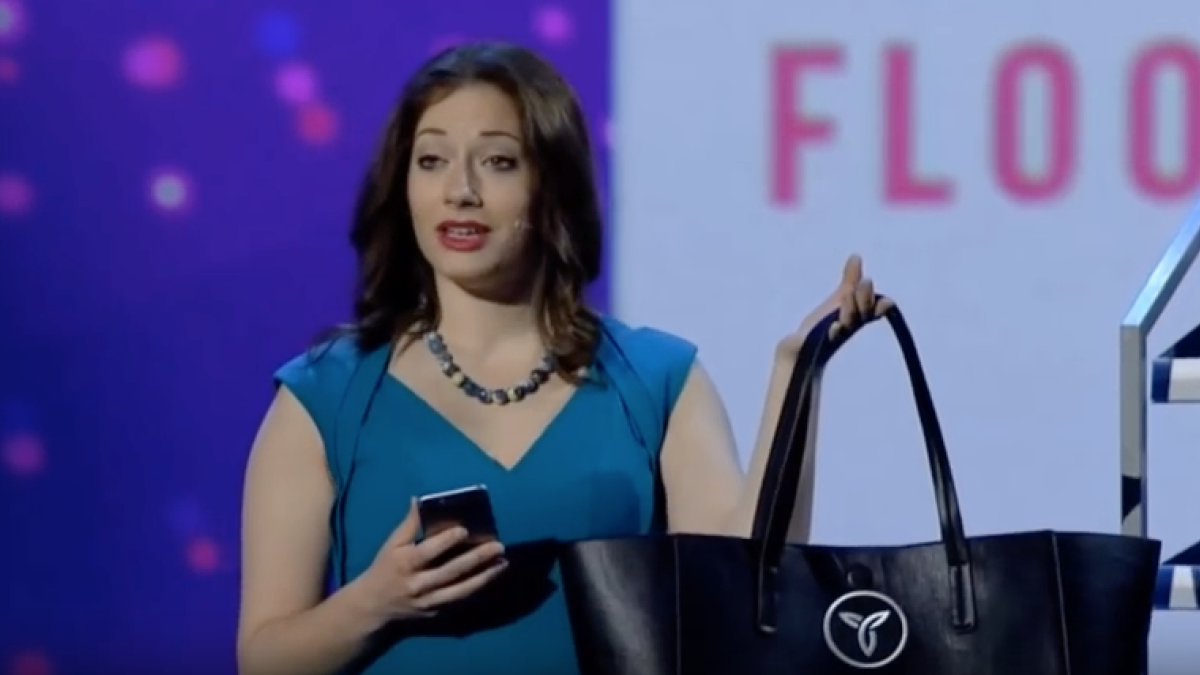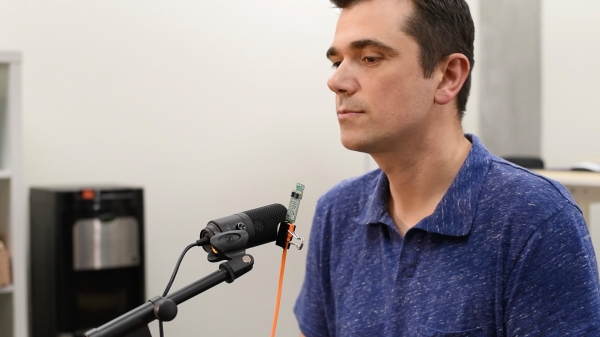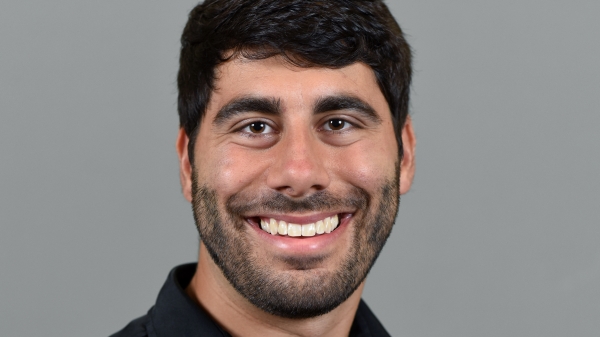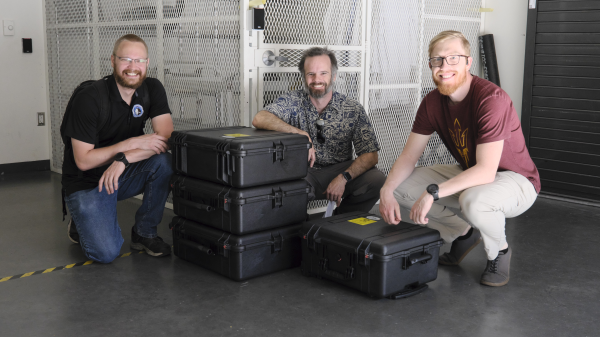Twyst bag lets you skip checkout line
ASU innovation incubator helps startup create smart shopping experience that promises to revolutionize retail

You just pulled a fierce day at work, but before you get home, you need to make a quick stop at the store.
You find 2 pounds of hamburger, buns and coleslaw in under 10 minutes, then get in line behind an extreme couponer and someone paying with an out-of-state postdated check. You’re not going home any time soon.
But Kevin Schaff wants to get you out of the store and out of that scenario — fast.
Schaff is the CEO and co-founder of Twyst, a company that has created the world’s first smart shopping experience with the help of the Avnet Innovation Lab at Arizona State University.
Here’s how it works:
The customer picks up a smart shopping bag in an equipped store where the products are labeled with radio-frequency identification tags (those shiny stickers you usually see with books and movies).
A lightweight Bluetooth device is built into the smart bag’s base. It recognizes when an item with the radio-frequency identification tag is placed inside (or taken out). The bag is lined with mylar that blocks out other signals so when a customer passes items in the store, they’re not added to the customer’s tab.
When the customer leaves the store, it sends a signal that triggers a mobile purchase, using payment information stored in the retailer’s app. The store can then follow up with a digital receipt via email.
“It’s a pretty new concept,” Schaff said. “People definitely get it.”
The object is to provide an “easier than online” experience. Twyst aims to transform retailers into smart stores.
“It’s true Internet of Things,” Schaff said.
Retailers will be able to analyze business at a nano level. The system allows for unprecedented data collection. How many items does the customer pick up? How many do they put back? What are the price differences between what’s purchased and what’s not?
Repricing (like markdowns and markups) can be done automatically via the radio-frequency identification chips. Inventory can be automatically calculated.
“At the end of the day, Twyst is all about analytics,” Schaff said.
There’s a huge upside for retailers beyond tracking sales patterns and inventory. For instance, should the store be configured differently? If there aren’t enough dressing rooms, people might bail rather than wait. In a large appliance store, checkout might be swift, but the wait for a product to be brought out to a customer might be long.
“We really are about eliminating wait, whether that’s a checkout or a dressing room or waiting for a runner,” Schaff said. “It’s just a better experience all around.”
Neither Schaff nor his co-founder Hayden Collins had any prior affiliation with ASU. They partnered with the university through the Avnet Innovation Lab to bring their concept to reality. They heard about the resource through a friend with an ASU connection.
A partnership between Avnet and ASU's Ira A. Fulton Schools of Engineering, the Avnet Innovation Lab is a tech startup accelerator that provides participants with monetary awards and one-on-one access to the brightest minds in technology distribution, supply chain management and next-generation technologies during a 12- to 18-month program. Participants also have access to dedicated lab space on the ASU Tempe campus.
“It was huge for us to have the two of those resources,” Schaff said. “We went from nothing to production-level hardware just about in the space of that program. It was really amazing.”
The Twyst story proves that ASU is a hub for innovation coming from anywhere, said Ira A. Fulton Schools of Engineering Dean Kyle Squires.
“The Avnet Innovation Lab offers entrepreneurs not only funding, but also expert insight about manufacturing and supply chain processes critical to bringing technology to market,” Squires said. “This accessibility attracts technology innovators like Twyst, which previously had no connection to ASU, and further elevates the Fulton Schools' profile as a national center for innovation and entrepreneurship."
Twyst hasn’t yet gone live in any stores, though Schaff said he has been in talks. Prototypes exist, and his team does demos at retail trade shows.
More Science and technology

ASU researchers develop special microphone to verify human speech
Deepfakes have become a large societal concern with the advent of video and audio content generated by artificial intelligence, or AI. A deepfake is a convincing imitation that blurs the lines…

Leading students toward a future of renewable energy
Nicholas Rolston, assistant professor in the School of Electrical, Computer and Energy Engineering, one of the Ira A. Fulton Schools of Engineering at Arizona State University, has found his passion…

SPARCS mission spacecraft bus delivered to ASU for final assembly
The Arizona State University team that is building the NASA-funded Star-Planet Activity Research CubeSat, or SPARCS, cleared a major milestone this week — receiving its spacecraft bus at the School…